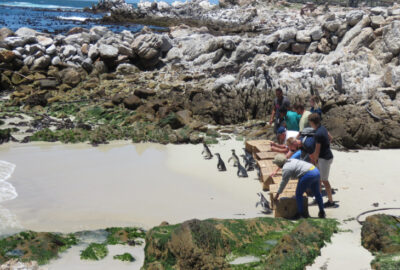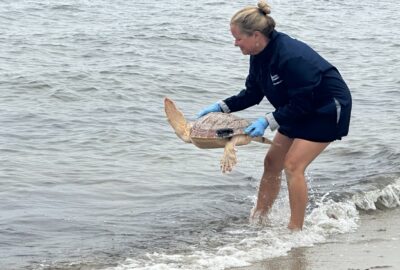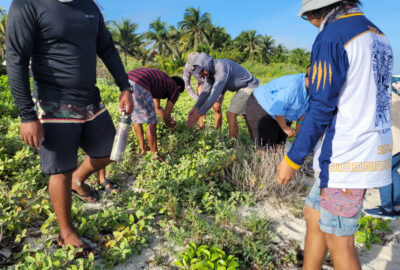A Look at Shark Research on Nantucket
By New England Aquarium on Friday, July 22, 2022


If you’ve been on Nantucket this summer, you might have spotted one of our shark researchers on the beach and wondered: What’s going on?
Learn more about what’s up on Nantucket from Caroline Collatos, a PhD student and researcher at the New England Aquarium’s Anderson Cabot Center for Ocean Life, who is currently conducting shark research on the island.
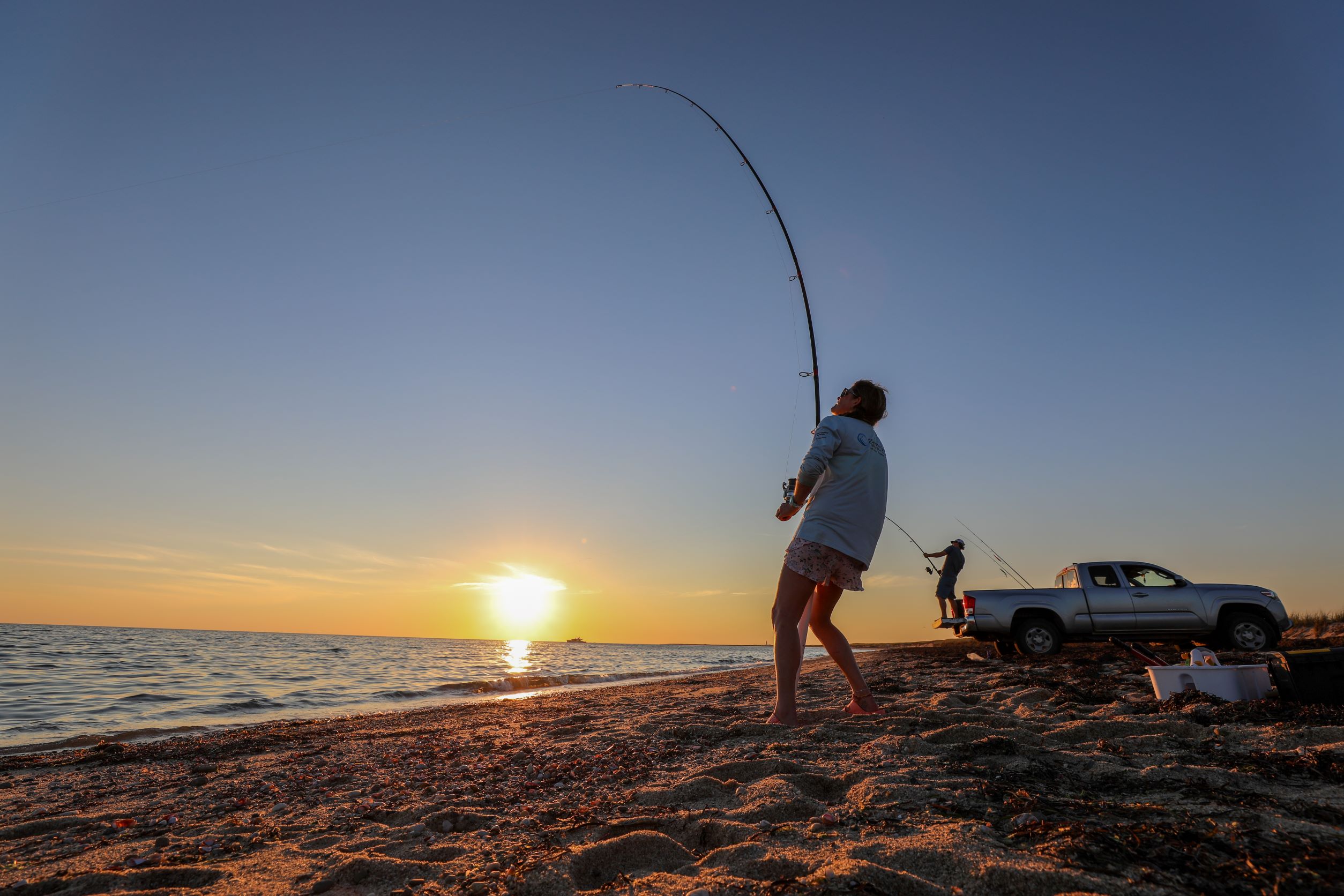
What research are we doing?
Throughout the summer months, sandbar sharks, dusky sharks, and sand tiger sharks gather in the nearshore waters around Nantucket; however, little is known about these species’ annual presence, habitat use, and demographics. Each summer since 2020, I’ve been catching, tagging, and releasing sharks on Nantucket and plan to continue this research for another couple of years. My research goals are to use catch data and acoustic telemetry data to describe the demographics of the shark species caught around the island; identify their presence, habitat use, and migration movements around the island and in the sound; and incorporate this information into larger stock assessments and ecological information for these species in Massachusetts waters.
By continuing to gather long-term data about these important species and expanding surveys, we can better understand these sharks’ ecological role around Nantucket.
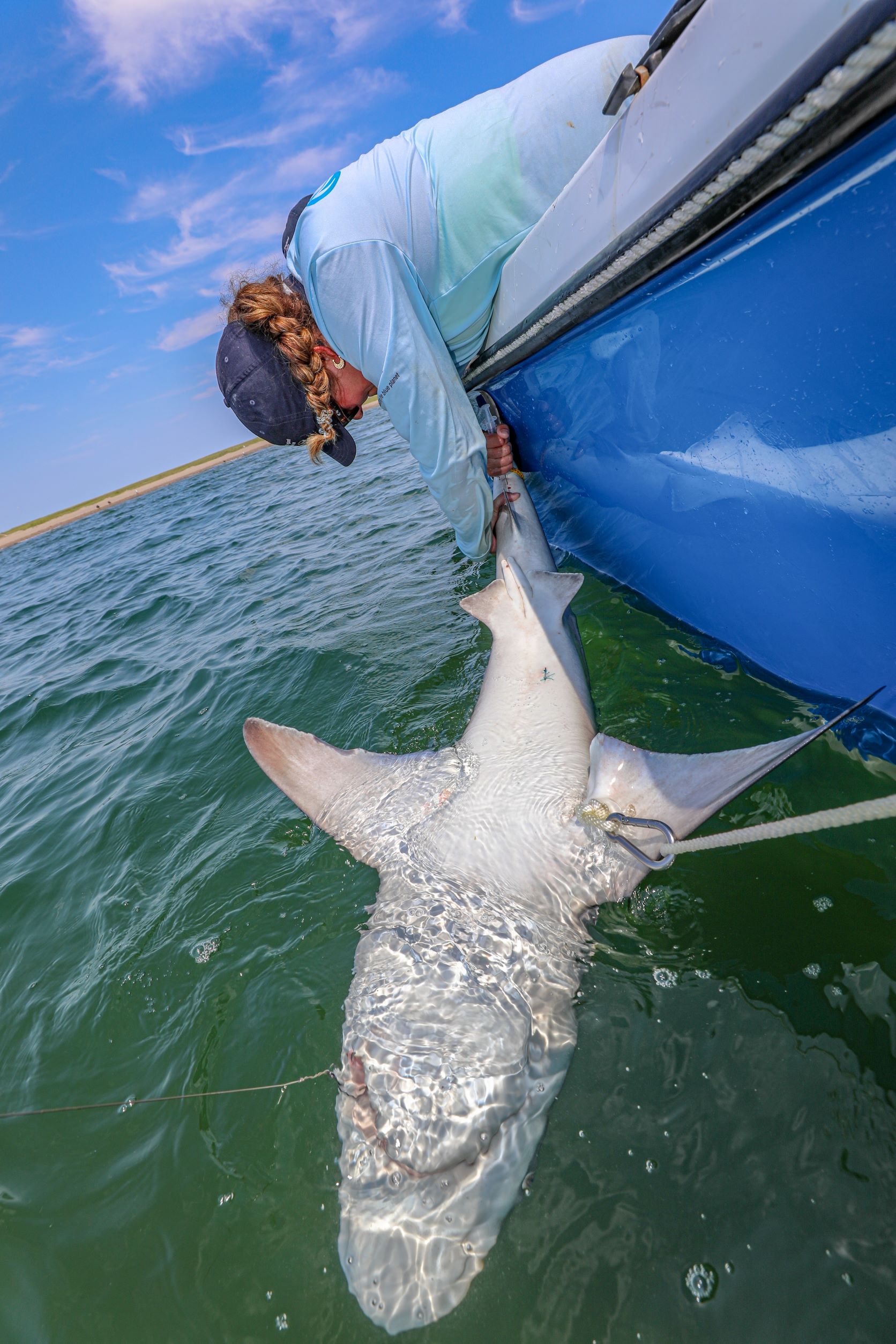
How do we do this work?
In order to achieve these goals, we use rod-and-reel fishing from the shore and from boats, and we deploy scientific longlines around the island and tag sharks. There are two different types of tags used to study these sharks’ movements. “Conventional” identification tags provide information on the sharks’ movement if they are recaptured, showing how far and where they have traveled since they were first tagged. We also use an acoustic transmitter tag which is programmed to emit an individual tag code on a specific frequency that receivers in the area are set to detect. When an animal swims within range, receivers log these detections with the specific transmitter code ID, time, date, and receiver ID. With receivers deployed in different areas, we can use these detections to gather information about sandbar shark presence, habitat use, and movements.
Currently, there is an array of 14 receivers placed around the island; six on the south shore are marked by yellow buoys, and eight on the north shore are marked by white buoys. These receivers are in the water from early June to mid-November and enable us to collect data on the tagged fish swimming around these waters! We also deployed this array last summer, resulting in a successful season of data collection.
What have we done so far?
In the past two years, we have put ID tags on a total of 90 sandbar sharks from Nantucket. These sharks range from four to six-and-half feet in length and are mostly females. In 2021, we tagged a subset of 12 sandbar sharks with acoustic transmitters. These sharks were detected moving around the island and the sound between July and September, then migrating south to North Carolina during the winter months.
So far in 2022, we have continued our tagging and have deployed 13 transmitters as of July 15. We are hopeful that we’ll obtain more data with these acoustic transmitters from this year and last since the transmitters have battery life of up to five years. Our acoustic array is back around the island, and we are hoping it will lead to another successful year of data collection!
Please remember, if you happen to catch a tagged fish — such as a shark, striper, or false albacore — please report the tag to the proper agency!
This work is being conducted in collaboration with the University of Massachusetts Boston, The Atlantic White Shark Conservancy, the Massachusetts Division of Marine Fisheries, and the Nantucket Land Council.

